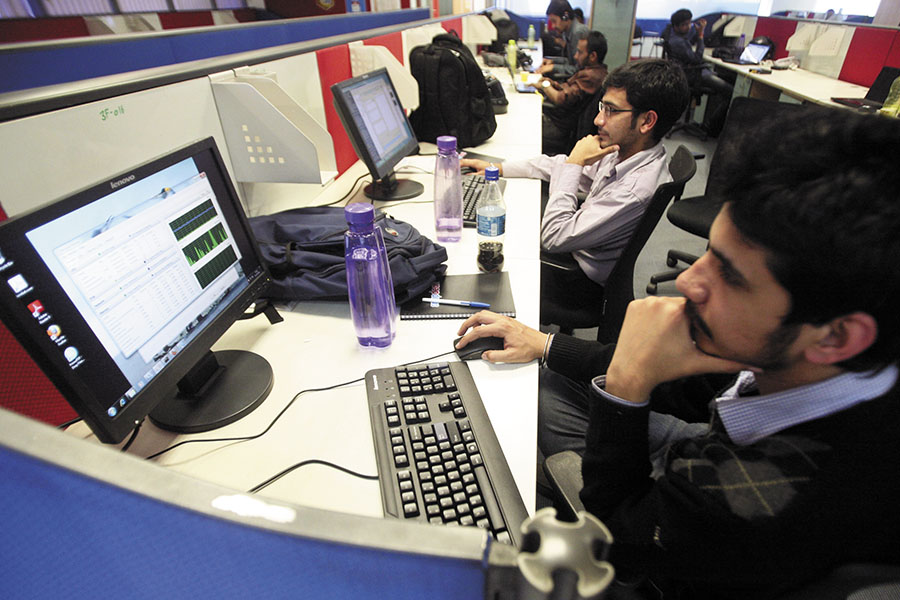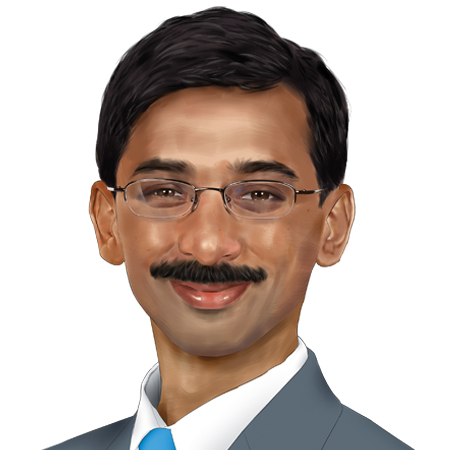
Lessons from unicorns: Let data guide your framework
Instead of judging past decisions, startups should continuously learn from their own journey and take advantage of the wealth of statistics at their disposal

Parivartan Sharma / Reuters
Unicorns are in a spot these days. Every step that they have taken has been subject to a volley of analysis. I am neither a detractor nor a defender of “what John should have done” because I am not him. I would like to present an alternative goal from the exercise of dissecting decisions taken by unicorns. For all of us in today’s highly mercurial startup ecosystem, there is a lot to learn from unicorns. However, to do so, let’s first suspend all rear-view judgements on these past decisions—no easy cop-out of declaring what was “right or wrong”. Instead, we will engage in a more frustrating and painful exercise, because—as the father of six-year-old Calvin, from Calvin and Hobbes, says—it “builds character”.
I recommend a two-step process. First, identify and understand the factors that influenced a decision. Second, and more importantly, understand how our own minds would process the factors that served as inputs for unicorn decisions (what would ‘I’ do and ‘why’).
Understanding the factors that go into a decision
When we pass a judgement on a past event (calling it a mistake or a genius call), we no longer need to analyse it because it’s already settled. Mistakes or genius calls are apparent only in hindsight. In the present, everything is a decision that may or may not work out. Therefore, put yourself in the shoes of the decision-maker as though you had gone “back to the future” and do some role playing. For example, rewind to March 2014 and ask what you would do if you were running Flipkart or Snapdeal. Try to eliminate what you learnt between 2014 and now. Identify the factors you would consider, decide your actions and ask, “What matters and why?” It’s not easy or precise because we cannot unlearn things, but it will be a worthwhile exercise. For example, in 2014 if you had the ability to raise a lot of money and grow quickly (while losing money), would you do that or would you choose to grow slowly and more profitably? Get into the habit of identifying input factors for decisions and also picking the more important ones from the list.

Ashish Gupta
Portrait: Sameer Pawar
Portrait: Sameer Pawar
Different people consider different variables and in different measures when making decisions. For example, independence may be non-negotiable for one entrepreneur, while for another, it may be financial return, or ego, prestige and so on. We have different priorities and realities. The person who works at IBM is not any less smart than an entrepreneur, but rather is optimising for a different set of variables. Try to identify what matters to ‘you’. There are no right answers and there is no playbook. Different people react differently to the same set of circumstances. So, spend time thinking about what you would do, and why. For example, if you had to decide whether to sell TaxiForSure to Ola, what would you do and why? Call up [TaxiForSure founders] Raghunandan G and Aprameya [Radhakrishna] and talk to them to understand their thinking? Working through different scenarios brings clarity on our own motivations and proclivities. Often we don’t have answers to the ‘why’, but that is okay. By constantly asking ‘Why I act the way I do’ clarity will emerge, possibly over one’s lifetime. The incremental clarity on personal motivation and thinking enables much more efficient decision-making and reduces regret and confusion.
The above two exercises help develop our decision-making framework. A framework has two components: (1) data and (2) the way someone arranges and interprets the data. An example of data is the fact that the largest internet companies in India have revenues of approximately $100 million. Interpretations can be many: That the companies are going to grow quickly now, they need to take more risks, the India domestic market is that large, etc. The interpretations will depend on what else the person knows, their optimism, risk-taking abilities and so on. The data is the same, but the interpretation will depend on the individual using that data. We all gather data over time through experiential learning. Then we interpret that data and convert it into rules of thumb, aka frameworks.
When new data arrives that contradicts our existing framework, we have a choice. We either change our existing framework, ignore that data, or we sometimes have confirmation-bias and we force-fit. Sometimes we accept that we don’t know and keep that data point in abeyance—the last choice is a great skill to develop—namely to live with outliers because not everything needs to fit. For example, when one is part of a startup, we think that it should succeed smoothly. Someone who has been part of multiple startups believes that every startup has a near-death experience. But then, we do rarely encounter a startup that does work smoothly. For me, this last data point is an outlier and does not modify my framework that most startups should prepare for near-death experiences. People who reassess frameworks very easily are “fickle and indecisive”. While those who revise their framework very rarely become “rigid and irrelevant”. The trick is to find a happy medium and to keep learning from these decisions and enhance one’s frameworks by gathering data.
In summary, most of the unicorns in India were born and grew up in the absence of sufficient experiential learning. Moreover, the executives had nascent frameworks with little data. They were charting new territory. Instead of judging the past using a ‘20-20 hindsight’, use the opportunity to dissect their actions and develop and refine your individual frameworks. We are now the beneficiaries of more data and a lot of unicorn experiences and it will serve us well to realise that there is plenty more to unfold in the future.
The writer is senior MD, Helion Advisors. The views expressed are personal.
(This story appears in the 25 November, 2016 issue of Forbes India. To visit our Archives, click here.)
Post Your Comment














